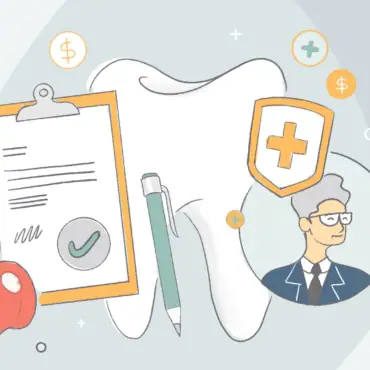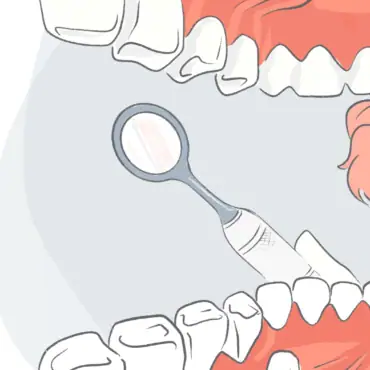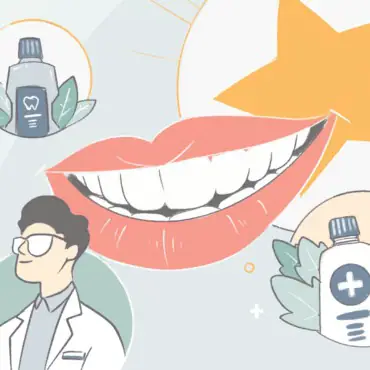Running a dental office requires multi-tasking. From acquiring new patients to negotiating an office lease and managing your employees – there are a myriad of challenges involved. Effective management of these activities can put your practice on the road to success, but how do you do that? These aren’t typically skills taught in dental school, and they can feel overwhelming at times.
Learn more about how Opencare can help your practice reach its full potential.Looking for insurance verification services?
How do you effectively manage it all and provide excellent dental care?
You’re not alone in feeling the sense of challenge here. Rare is the business that can do all these things well. That’s why practices will sometimes choose to outsource certain activities they don’t have the time or expertise to do. It’s costly, but it does free up your time to focus on patient care. So how do you weigh the costs and benefits to determine what and if outsourcing is a good option for you?
Take, for instance, insurance verification (IV). When it comes to IV, there’s a range of options: from having your front office staff do 100% of it to outsourcing to a partner like Opencare. And there’s quality to consider; how much more valuable is IV done right in spite of higher costs? There are real tradeoffs to this decision.
Why is insurance verification Important?
Insurance verification is an essential aspect of revenue cycle management that helps avoid claim denials, reduces patient ineligibility-based rejections, and speeds up the billing cycle. This improves office processes, optimizes patient retention strategies, and goes a long way towards optimizing profitability. In short, IV saves your practice time and money.
Don’t forget about accuracy
There are generally two parts of the equation to optimizing your practice performance: generate more revenue or decrease costs.
Often, when we speak with dentists, they consider insurance verification a cost center – something they need to pay someone to do to run their practice. However, at Opencare, we think of it as a revenue enhancer, where high quality, even at a higher cost, can be MORE valuable.
Let’s run through an example: let’s say your office manager is completing IVs and paid $20 per hour. You have the opportunity to switch this to a service that can complete the same IVs/hr but it costs $30 per hour. Most of us would do the quick mental math and keep it in house, it’s $10 cheaper.
But consider accuracy – what is the accuracy rate of your office manager vs. that of the service provider? Remember, there are already fixed costs like hygienist salary, rent, etc. you’re paying, so wasting an appointment slot or not being paid by insurance on the back end because of an incorrect IV is quite expensive!
Going back to our example, let’s say the difference in accuracy is 10% between your office manager and service provider. And each can do 3 IVs per hour, so it costs $67 for your office manager and $100 for your service provider to do 10 IVs each. That’s a difference of $33 – which is easily covered by having 1 more appointment or being able to collect the fee from insurance for that appointment. So in many instances, even paying more, your practice is realizing more value from improved accuracy.
The benefits of in-house IV
First and foremost, doing IV in-house is beneficial because you have more control of the entire billing process. This allows you maximum customization of the process to your schedule, needs, and systems. In addition, employees can address any issues right away.
Second, an in-house IV expert can help resolve a patient’s queries before their dentist appointment. In-house experts are often intimately familiar with each patient and their individual history, needs, and circumstances.
Finally, doing so in-house is generally cheaper – especially if you have front office staff who have some free time. Going back to the example above, even the cheapest outsourced options will cost a bit more than you’re paying your staff.
How much does in-house IV typically cost?
When Opencare has asked our dental practices how they evaluate this, dentists often will cite salary against the cost of the outsourced option. That’s a good starting point, but there are numerous hidden costs associated with in-house IV that are harder to discern. Make sure you’re factoring these in, as it may very well affect your decision.
Looking for insurance verification services?
Learn more about how Opencare can help your practice reach its full potential.
Let’s look at these hidden costs:
Recruiting
How much time does a dental practice spend hiring a qualified front office person? Consider time spent on advertising, reviewing resumes, completing background checks, pre-employment assessment tests, and other recruiting activities. Do you want to spend the time and energy to do this not only upfront, but if your staff leaves?
Training
What training and skill development does the employee need to manage this position on an ongoing basis? On-the-job training and continuing education requirements can add significantly to cost and reduce available hours to work on IV.
Benefits
The obvious cost of taking on a new employee is their salary. However, there are numerous other employment costs to think about as well. Standard employee taxes and benefits like insurance add ~20% in salary, which doesn’t include additional perks that you may wish to provide.
The indirect costs of in-house IV
Besides the direct costs, there are also some additional factors to consider:
Management time
Ever have to fire an employee? Or have to go through an uncomfortable compensation discussion? People management can be tricky, time consuming, and just plain stressful, which is why there are professionals who specialize in this. If this comes natural to you, great. But is it something you want to carve out the headspace for?
Opportunity cost
Insurance verification processes take away a valuable asset from your front office staff: time. Your front office staff could be doing more efficient and valuable tasks, like talking about treatment plans or spending time helping patients understand their treatment plans. This is known as opportunity cost.
You always want to take into consideration the potential value you are losing when you have missed opportunities in your office.
What can you gain from outsourcing IV?
Once you’ve adjusted for all these factors, you can begin to understand the true cost of the in-house option. Compare that to a fully outsourced managed service can provide:
- High quality insurance verifications with accuracy of, maximizing the number of patients you can see
- Limits incremental staff time, which can reduce compensation cost and/or free staff to do other activities
- Eliminates need and time for upfront and on-going training
- Reduces management time
Furthermore, insurance verification outsourcers like Opencare have the knowledge and experience to help you collect payments more quickly and reduce claim denials. And by reducing time spent on IV, it can enable you to focus on offering exceptional patient care and building stronger relationships with your patients.
What’s the right choice: in-house or outsource?
There are times when it makes sense for you to do tasks in-house, and there are advantages to doing so with IV. It gives you more control and options to customize the process and can be cheaper.
Looking for insurance verification services?
Learn more about how Opencare can help your practice reach its full potential.
However, there are real costs as well which we often see dentists ignore. Some things may not be so obvious at first like accuracy, management overhead, and additional costs – to the detriment of their practice.
Ultimately, every dental practice has unique needs, and you need to decide what’s best for you. To get the most benefits of IV for your dental practice, conduct a thorough cost analysis and weigh the factors we’ve discussed here.
If you have questions, reach out to us. We’d be happy to help you evaluate your options.








